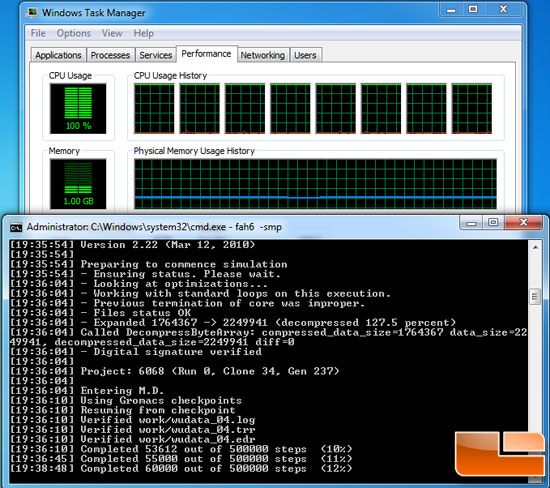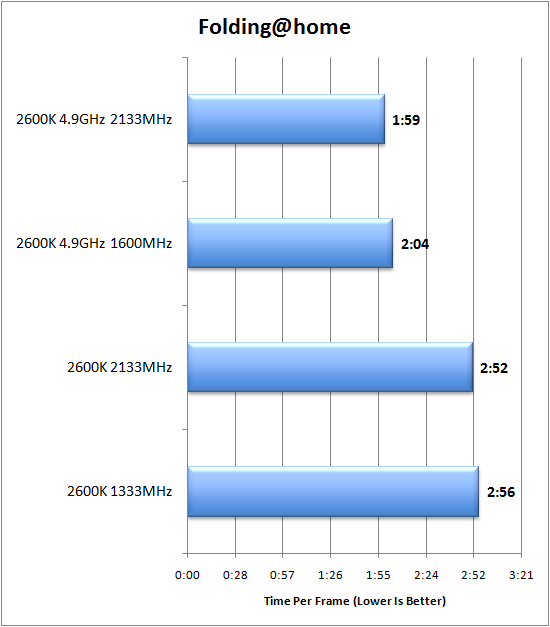Kingston HyperX Genesis 4GB 2133MHz DDR3 Memory Kit Review
Folding@home
Folding@home is a distributed computing project — people from throughout the world download and run software to band together to make one of the largest supercomputers in the world. Every computer takes the project closer to our goals. Folding@home uses novel computational methods coupled to distributed computing, to simulate problems millions of times more challenging than previously achieved. Moreover, when proteins do not fold correctly (i.e. “misfold”), there can be serious consequences, including many well known diseases, such as Alzheimer’s, Mad Cow (BSE), CJD, ALS, Huntington’s, Parkinson’s disease, and many Cancers and cancer-related syndromes.
The work unit we used was a p6054 which is part of the SMP high performance client for Folding@home.


Folding@home has made great strides with the new A3 SMP folding client; it scales very well across multiple physical cores as well as Hyper threaded cores. As you can see, clock speed and memory speed play a huge part in SMP folding performance. The Folding@home SMP client has a large working set as the simulation needs quite a bit of memory. We can see that memory bandwidth has noticeable impact on performance. At the default clock speed of our Intel Core i7 2600K we see a drop of four seconds for each time per frame with the Kingston HyperX Genesis 2133MHz memory. At 4.9GHz we see a 5 second drop in every frame between 1600MHz and 2133MHz. Clearly our Core i7 2600K is making excellent use of the available bandwidth!
In terms of what differences you’ll see in score output, the default clock speed Core i7 2600K gained about 650 points per day, while at 4.9GHz the difference was right at 2000 points per day! Our Core i7 2600K at 4.9GHz with 2133MHz has an incredible output of about 33,402 points per day when working on the SMP work unit 6054! If you run -bigadv you’ll see an even bigger increase in points per day.

Comments are closed.